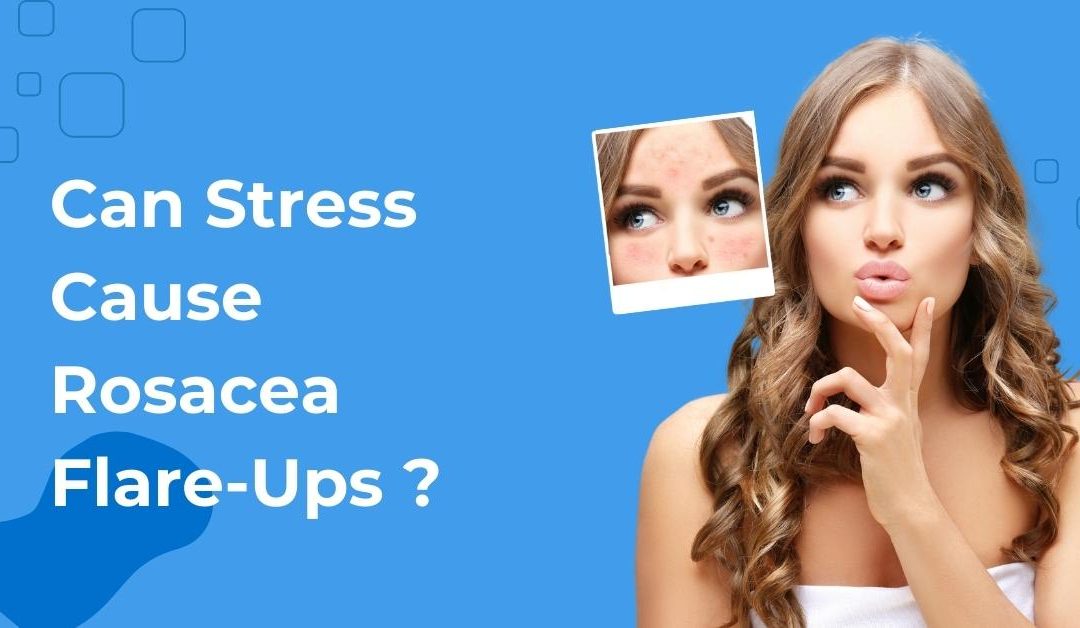According to the American Academy of Dermatology Association, Rosacea is a common skin disease that often begins with a tendency to blush or a flushing appearance, more quickly than other people. The U.S. Government reported that more than 14 million people live with rosacea. These figures include those between the ages of 30-50 (including men, women, and people of color). Children also may develop rosacea.
Although researchers are still trying to answer this question, stress may cause these flare-ups. Emotions are powerful forces in our bodies that affect our mood, health, physical appearance, and energy.

Stress, Spicy Foods and Alcohol
Stress manifests as emotion and triggers rosacea flare-ups as quickly as spicy foods and alcohol. Excessive stress can cause the body to overreact, causing dramatic chemical and physical changes. People under severe stress may gain or lose weight, break out in hives or pimples, or in some instances, lose their hair. Still, for those with rosacea, physical anxiety symptoms may include flare-ups because rosacea links to abnormal chemical reactions in the skin.
According to a survey conducted by the National Rosacea Society, stress management can reduce its impact. The results share that 91 percent of 700 rosacea patients reported that emotional stress sometimes caused their rosacea to flare up. Patients’ most challenging emotional stress regarding their rosacea was anxiety, followed by anger, frustration, worry, and embarrassment.

Controlling stress is about locating its cause. If you experience a rosacea flare-up, try journaling how you feel. After a few weeks, you will discover a pattern of your outbreaks and their triggers. After identifying the triggers, you can avoid the triggers and focus on your healthy habits which influence our bodies’ functioning and skin. Just like the health benefits of breathing and exercising, reducing the physical effects of stress is just as important.
If you cannot identify the stress, you can determine what relaxes you.
Whether it is reading a book, taking a walk, or having conversations with friends, and taking these steps to inspire a healthier lifestyle can affect your overall skin appearance.


